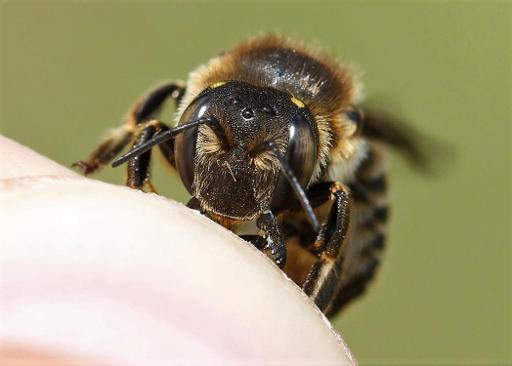Four new species of bees have appeared in Belgium last year, several of which were found in Brussels, Flemish nature protection organisation Natuurpunt reports on Thursday.
In addition, several other species have managed to “conquer the entire country” within a few years, and others yet “are making a remarkable comeback,” Natuurpunt said.
The appearance seems to be due to climate change. The year’s heat waves and droughts brought on by climate change, while having “a devastating effect on nature,” also seem to have brought a lot of bee species to Belgium at a rapid pace, according to Natuurpunt.
A first new bee species, Andrena lagopus, was observed twice in just ten days in the province of Namur, which makes Natuurpunt suspect that the species has definitely settled in Belgium.
Anthidium septemspinosum, a second species, appeared in Brussels at the Friche Josaphat in Schaerbeek, a location which is “a real bee hotspot,” Natuurpunt said.
Related News
- WWF: Loss of biodiversity is a danger to human health
- UN urges countries to declare 'state of climate emergency'
A third species, Megachile nigriventris, was spotted in four different places throughout Belgium, and a fourth, Anthidium florentinum, was spotted in Brussels’ Woluwé park.
While the warmer climate brought new bees and meant the return of Halictus quadricinctus and Hoplitis tridentata, bees that like colder climates are expected to eventually disappear from Belgium, though Natuurpunt warned that “the appearance of species is easier to determine than their disappearance.”
One in three species of bees are threatened with extinction, according to Natuurpunt, and 12% are already extinct.
Jason Spinks
The Brussels Times
Correction: A previous version of this story contained a photo of a hoverfly.

